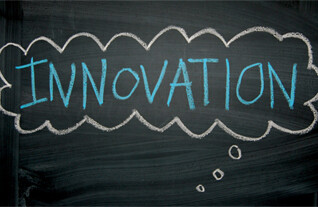The United States may be a leader in scientific research, but it is falling behind in public science literacy. According to the Programme for International Student Assessment (PISA), a comparison of education across the developed world, the United States ranks 21st in science and 25th in math out of 30 countries.
The Obama administration has taken this news to heart and is putting money into new programs such as Educate to Innovate and Race to the Top, while the House of Representatives recently reauthorized the America COMPETES Act. These programs all aim to improve the way science is taught through increased funding, new competitions, events to increase student interest, and new education research.
The motivation for education reform comes from the fact that many of the greatest global challenges demand technical expertise. As President Obama stated in his remarks on the Educate to Innovate campaign, "The key to… improving our health and well-being, to harnessing clean energy, to protecting our security, and succeeding in the global economy will be reaffirming and strengthening America's role as the world's engine of scientific discovery and technological innovation. And that leadership tomorrow depends on how we educate our students today, especially in those fields that hold the promise of producing future innovations and innovators."
Still, the U.S. education system does produce some topnotch results. The PISA study, administered to 400,000 15-year-olds around the world, shows that 2 percent of U.S. students performed at "level 6," the highest achievement level defined by the test, while many of the countries that were ranked higher overall had only 1 percent of their students performing at that level. However, the study also shows that most top-performing students attended schools with other top-performing students, suggesting that top students are concentrated at certain schools.
From a social perspective the bottom line is important. The symptoms of science illiteracy are spread across the United States, and in many cases they're getting worse. More and more parents each year refuse to vaccinate their children, resulting in higher rates for diseases that had been mostly eradicated. While most of the developed world accepts evolution and teaches it, members of the Texas board of education fight to keep evolution out of schools.
The American public school system devotes less time to science than most other developed countries. According to the 2007 Trends in International Mathematics and Science Study, an international comparison of students at the fourth-grade level, U.S. schools devote only 7 percent of classroom time to science. Some states, such as Minnesota, are as low as 3 percent. This puts the United States below the international average of 9 percent, and very far behind high-scoring countries like Germany, where 18 percent of time is devoted to science.
In an interview at the 2010 AAAS conference in San Diego, Martin Storksdieck, Director of the Board on Science Education at the National Academy of Sciences, told Policy Innovations that deficiencies in the public education system are partly due to the low prestige of the teaching profession in the United States. Storksdieck grew up in Germany where the story is quite different. "[Teaching] is a highly respected profession in Germany, it's extraordinarily competitive to get in," he said. "In order to become a teacher in Germany you have to have two equivalent master's in the subject field."
In the United States, most students study science to become medical doctors or researchers, and many of them have negative attitudes toward the idea of teaching as a career. "I think there is definitely a stigma against science education," says Ying Li, an undergraduate student at Columbia University and a volunteer public school teacher. "There's a reputation that the bottom of the barrel goes into education, and usually because they can't do anything else."
Graduate and Ph.D. programs in the sciences are still strong in the United States, and nearly half of the students they accept are from abroad. The National Science Foundation published a report showing that 52 percent of science doctorates awarded in the United States in 2006 went to U.S. citizens, with the growth rate for international student Ph.D. awards triple that of U.S. citizens.
S. James Gates Jr., a professor of physics at the University of Maryland and a member of the President's Council of Advisors on Science and Technology, says the American education system lacks a cycle of innovation. "I don't see a mechanism in science education that drives the kind of research innovation that I see coming from DARPA," he said. "We don't have a policy tool that allows innovation in education and education research."
There has been some innovation in science education through private organizations such as the Howard Hughes Medical Institute (HHMI). HHMI's impact is not on policy, but on public school teachers and their understanding of science. Through a program called the Science Education Alliance, HHMI brings public school teachers and research scientists together to improve teachers' knowledge of their subject matters and to develop new, creative ways to introduce basic scientific concepts to students. Already, after only a few years of operation, the effectiveness of this program is reflected in student test scores.
The problem with relying on private institutions such as HHMI to drive the "cycle of innovation" is that results will always be confined to a few schools or districts. Addressing the national crisis of science literacy requires change at a larger scale.




